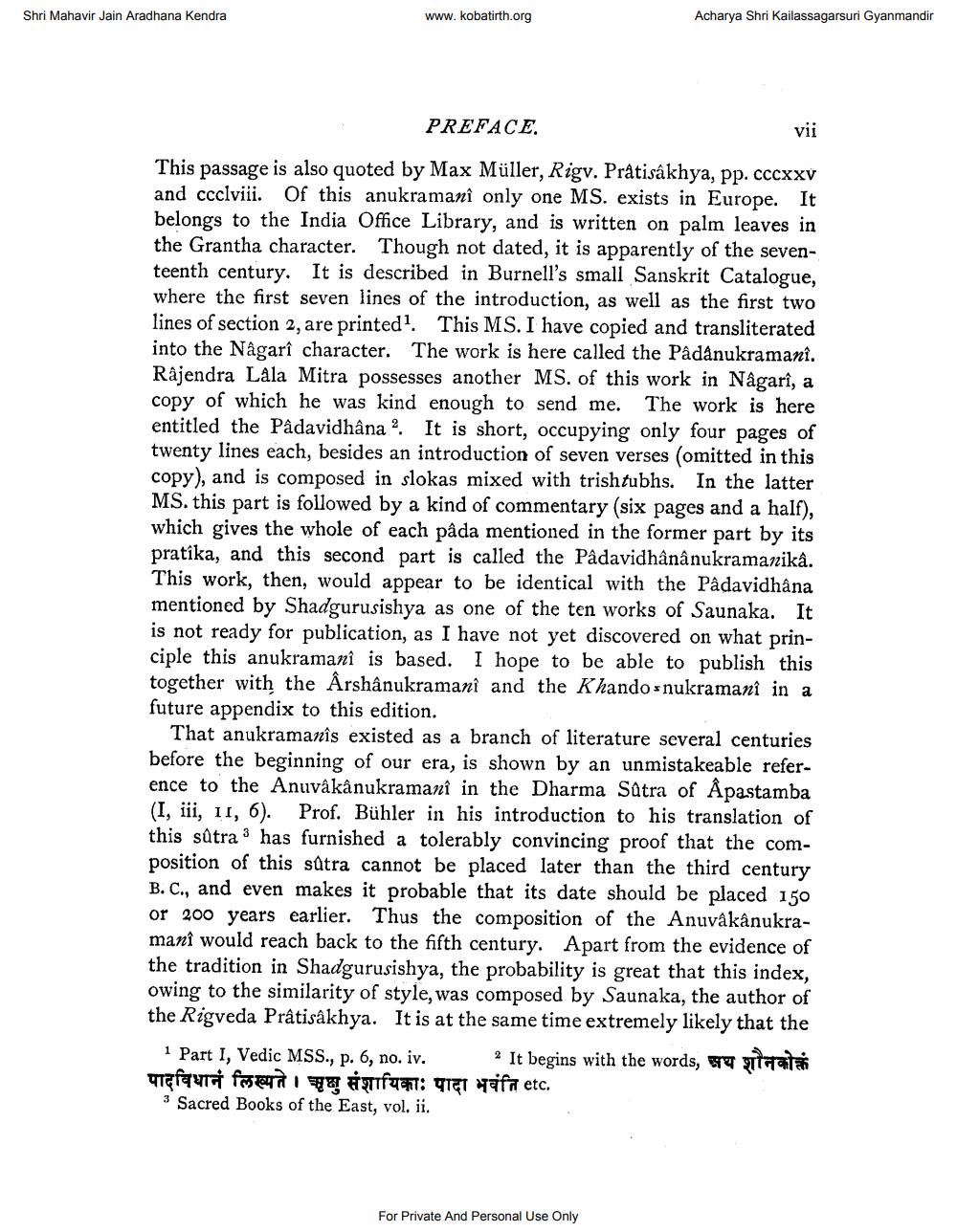________________
Shri Mahavir Jain Aradhana Kendra
www.kobatirth.org
Acharya Shri Kailassagarsuri Gyanmandir
PREFACE.
vii
This passage is also quoted by Max Müller, Rigv. Prátisakhya, pp. cccxxv and ccclviii. Of this anukramanî only one MS. exists in Europe. It belongs to the India Office Library, and is written on palm leaves in the Grantha character. Though not dated, it is apparently of the seventeenth century. It is described in Burnell's small Sanskrit Catalogue, where the first seven lines of the introduction, as well as the first two lines of section 2, are printed! This MS. I have copied and transliterated into the Nagarî character. The work is here called the Pâdânukramani. Rajendra Lala Mitra possesses another MS. of this work in Någarî, a copy of which he was kind enough to send me. The work is here entitled the Pâdavidhâna? It is short, occupying only four pages of twenty lines each, besides an introduction of seven verses (omitted in this copy), and is composed in slokas mixed with trishtubhs. In the latter MS. this part is followed by a kind of commentary (six pages and a half), which gives the whole of each pâda mentioned in the former part by its pratîka, and this second part is called the Pâdavidhânânukramanika. This work, then, would appear to be identical with the Pâdavidhana mentioned by Shadgurusishya as one of the ten works of Saunaka. It is not ready for publication, as I have not yet discovered on what principle this anukramanî is based. I hope to be able to publish this together with the Ârshậnukramani and the Khando snukramani in a future appendix to this edition.
That anukramanîs existed as a branch of literature several centuries before the beginning of our era, is shown by an unmistakeable reference to the Anuvâkânukramani in the Dharma Sutra of Apastamba (I, iii, 11, 6). Prof. Bühler in his introduction to his translation of this sûtra 3 has furnished a tolerably convincing proof that the composition of this sutra cannot be placed later than the third century B. C., and even makes it probable that its date should be placed 150 or 200 years earlier. Thus the composition of the Anuvâkânukramanî would reach back to the fifth century. Apart from the evidence of the tradition in Shadgurusishya, the probability is great that this index, owing to the similarity of style, was composed by Saunaka, the author of the Rigveda Prâtisakhya. It is at the same time extremely likely that the
1 Part I, Vedic MSS., p. 6, no. iv. It begins with the words, lata पादविधानं लिख्यते । ऋक्षु संशायिकाः पादा भवंति etc. 3 Sacred Books of the East, vol. ii.
For Private And Personal Use Only




